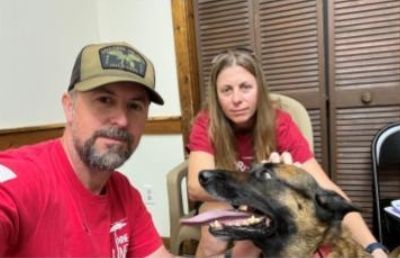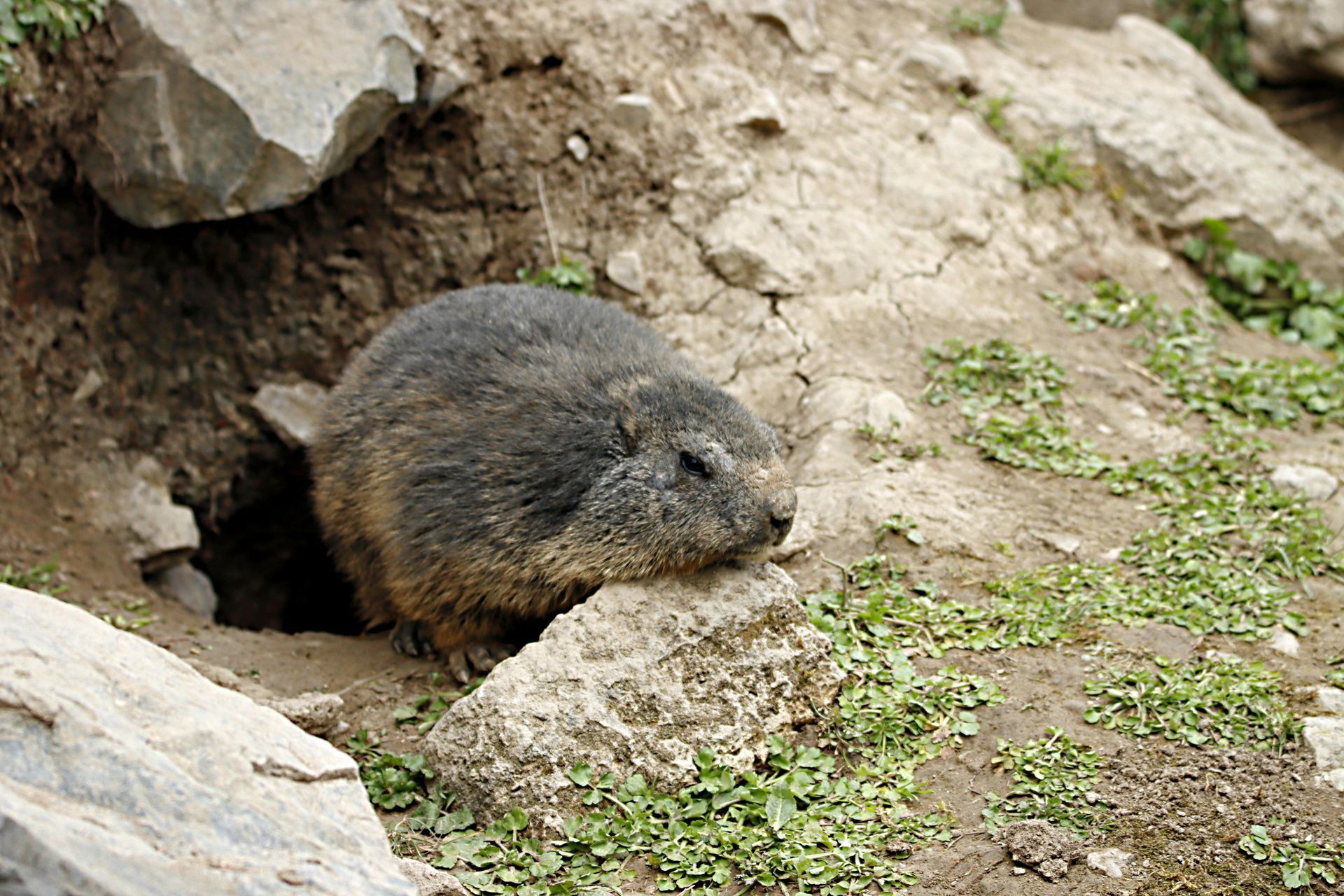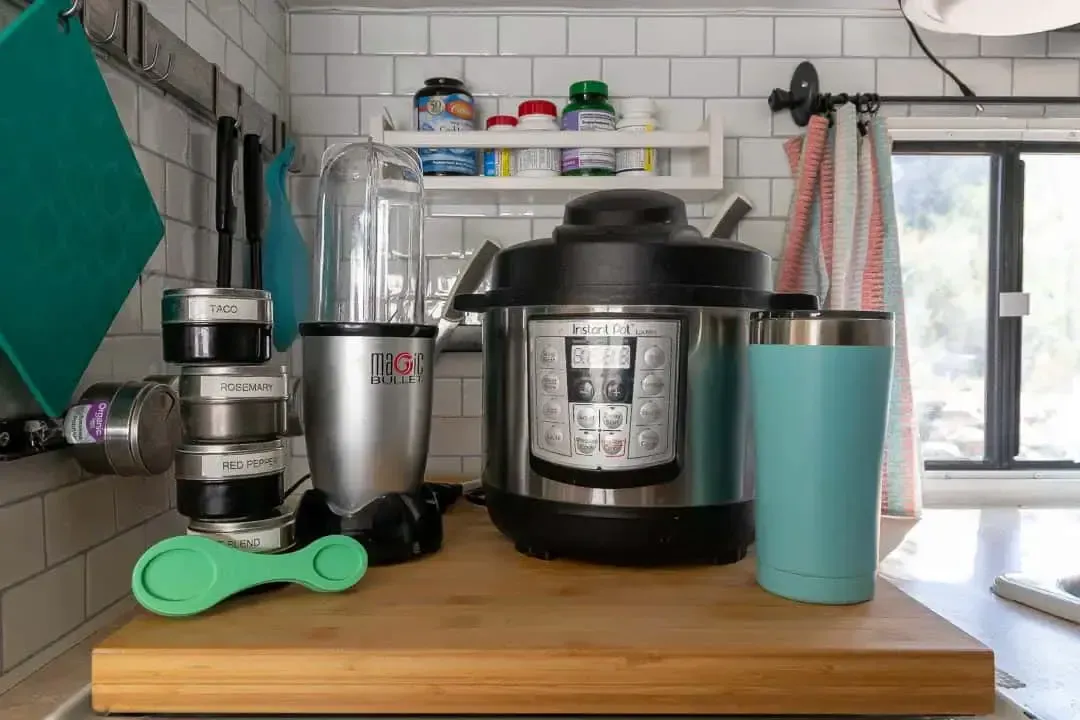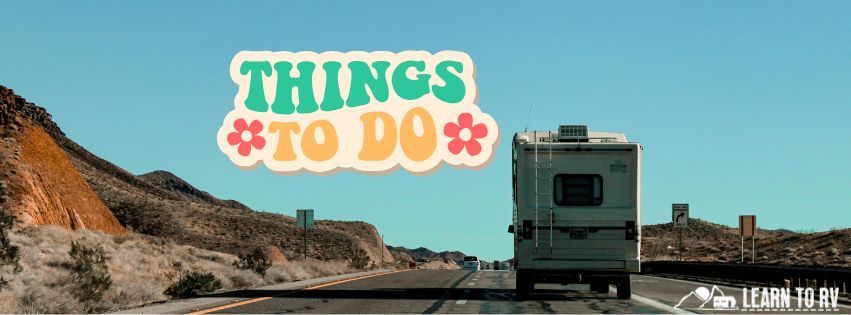Boondocking 101: A Beginner’s Guide to RV Life Off-Grid
Steven Gallaher, Campfires & Motors • September 30, 2025
Boondocking is one of the most exciting and rewarding ways to experience RV life. Instead of pulling into a crowded campground with full hookups, boondocking lets you park your rig in wide-open spaces, enjoy peace and quiet, and often stay completely free of charge. But if you’ve never tried it before, the idea of camping without power, water, or sewer can feel a little intimidating. That’s where this guide comes in.
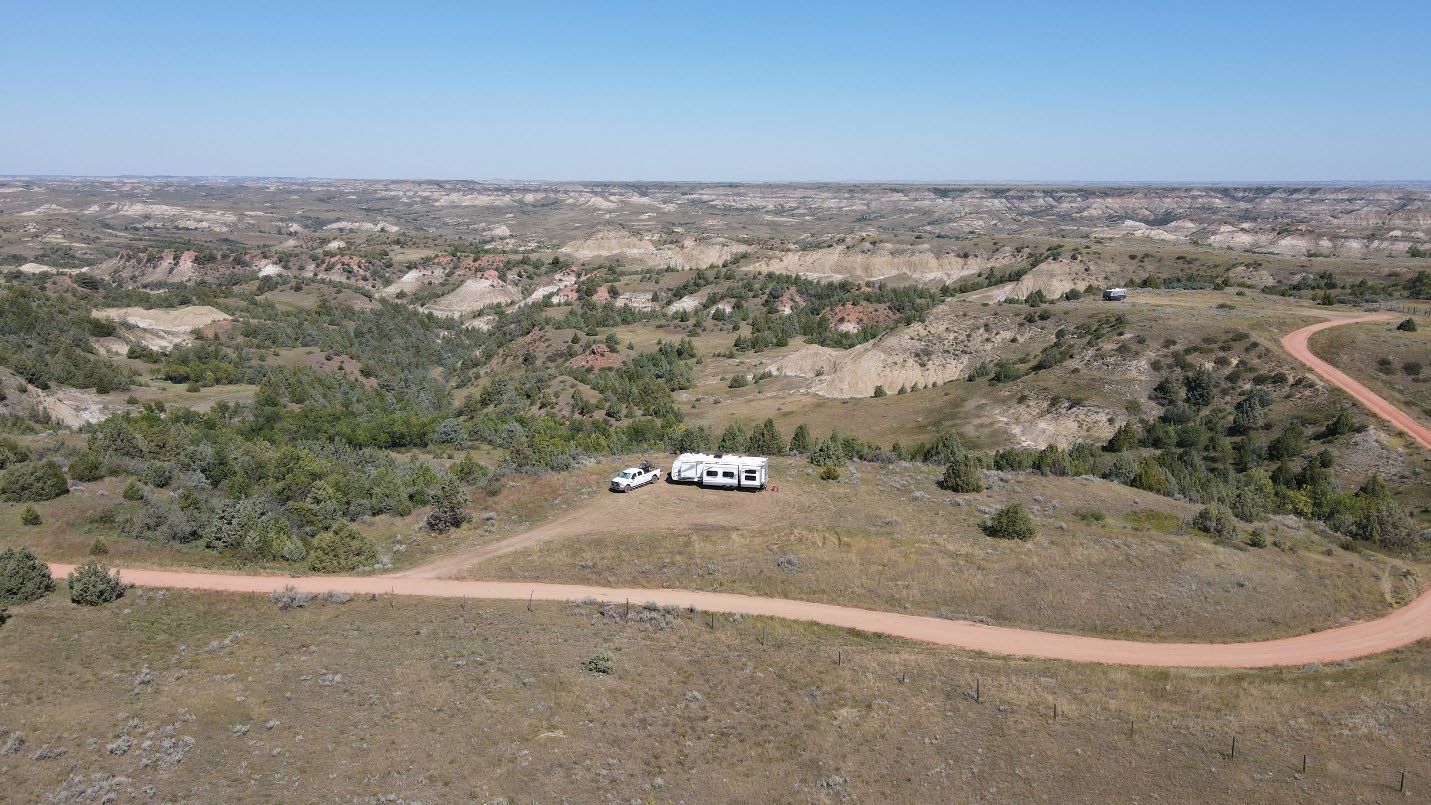
In this post, we’ll cover the basics of boondocking; what it is, why people do it, and the gear and tips you’ll need to get started. Whether your brand new to RV’ing or looking to branch out from campgrounds, this beginner’s guide will give you the confidence to try camping off-grid. After checking out this article, watch our video Boondocking 101: Everything You Need to Know on our YouTube channel (link at the bottom).
What is Boondocking?
Boondocking, also called dry camping, dispersed camping, or off grid camping, simply means camping without hookups. You’re not plugged into campground power, you don’t have a water spigot at your site, and there’s no sewer connection. Instead, you rely on your RV’s tanks, batteries, and whatever gear you bring along to be self-sufficient.
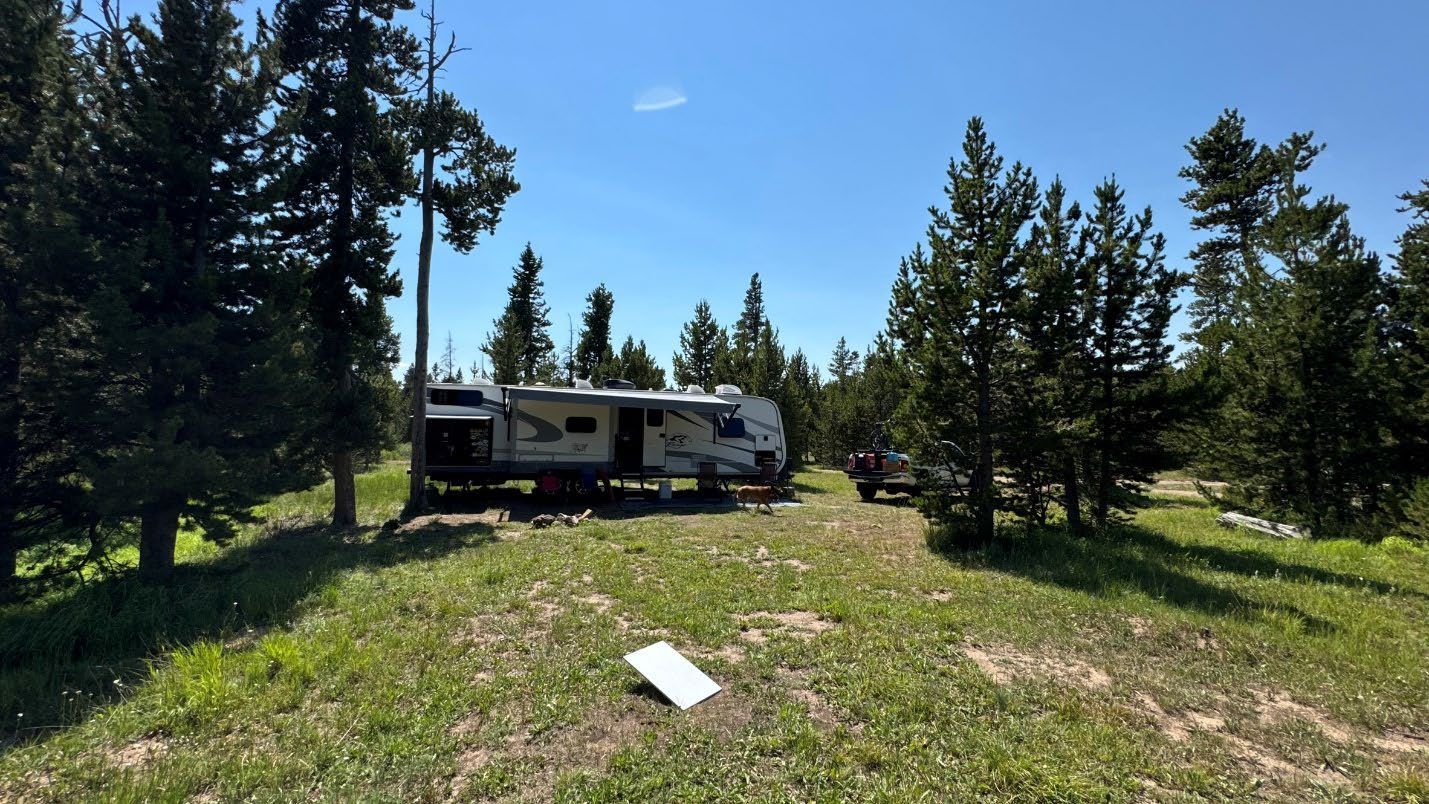
For some RV’ers, boondocking might be as simple as overnighting in a parking lot, places like Walmart, Cracker Barrel, or Cabela’s are popular for short stays. For others, it means heading deep into the backcountry of a National Forest or onto BLM (Bureau of Land Management) land where you’re surrounded by nothing but nature. Boondocking offers something for everyone, whether you want convenience or solitude.
Why Try Boondocking?
There are a lot of reasons people are drawn to boondocking, and most of them have to do with freedom and experience. When you break away from campgrounds, you open up your travel possibilities in big ways.
- Freedom: You’re not tied to a campground schedule or location. You can choose when and where you camp, often in places that most RV’ers never see.
- Scenery: Some of the most stunning campsites are free boondocking spots in the mountains, deserts, or forests. Imagine waking up to a sunrise over a canyon or watching elk graze outside your window.
- Savings: Campground fees add up quickly, especially for those, like us, living the full-time RV lifestyle. Boondocking can save you hundreds, or even thousands of dollars each year.
- Peace & Quiet: Instead of crowded rows of RVs, you get wide-open spaces, few neighbors (if any), and the calming sounds of nature.
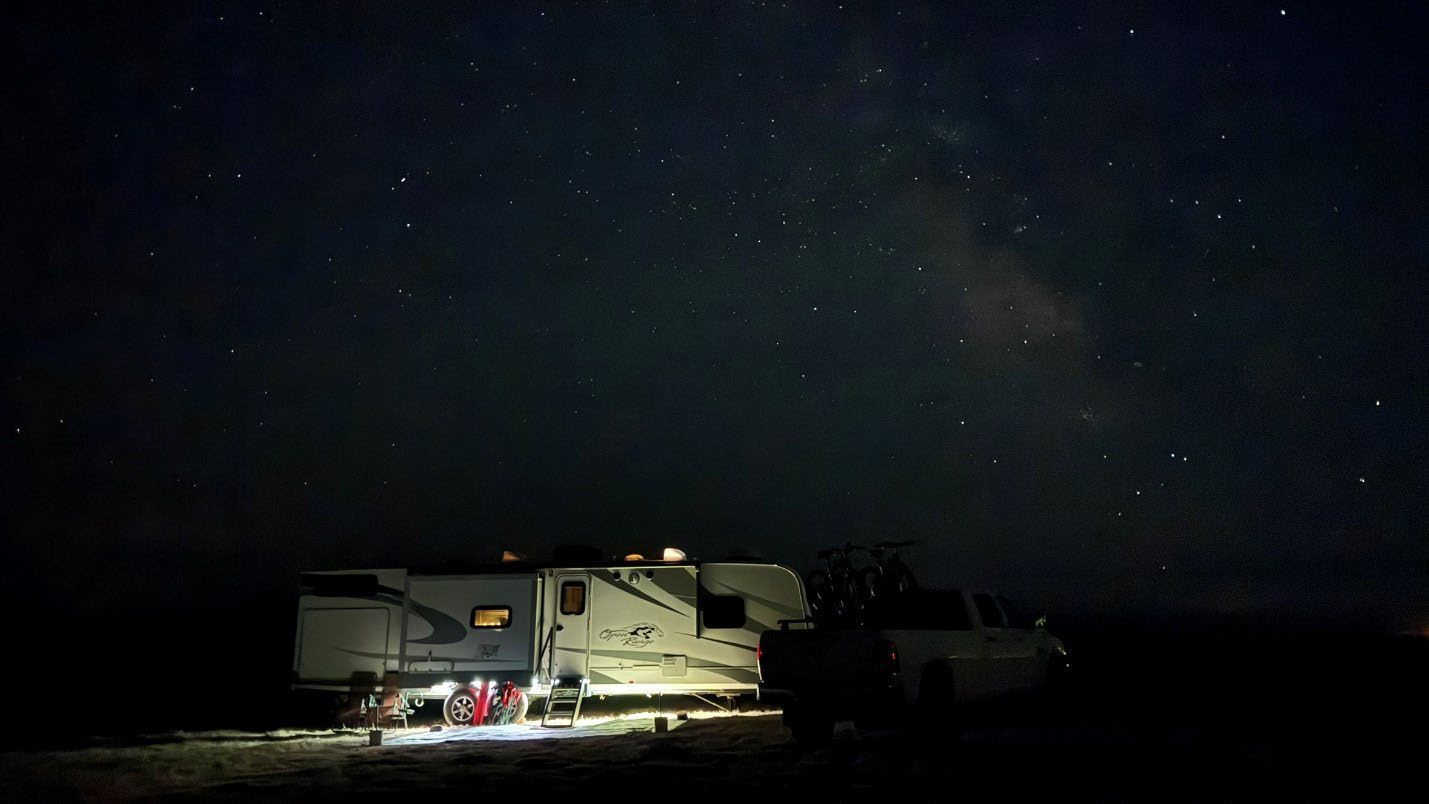
Where to Find Boondocking Spots
Finding the right boondocking spot is part of the adventure. With a little research, you can uncover amazing free or low-cost camping locations.
- Apps & Websites: Tools like Roadtrippers, Campendium, iOverlander, FreeRoam, and AllStays are designed to help RV’ers find and review boondocking sites. Many listings include cell service info, road conditions, and site photos. Be sure to also check out Google Maps and the satellite view.
- Word of Mouth: Other RV’ers are one of the best resources for finding great spots. Campground conversations and RV Facebook groups often lead to hidden gems.
- Scouting Ahead: Always check road conditions before driving a large rig into remote areas. Narrow roads, low branches, or soft sand can quickly turn a trip into a challenge. Walk down the road or fly a drone (if allowed) to inspect the road and sites ahead.
Many public lands allow up to 14 days of camping at a site, but always check local rules, permits, and posted signs for restrictions before setting up camp.
Essential Gear for Boondocking
Boondocking doesn’t require the most expensive equipment, but being prepared makes the experience much smoother. Your setup can be as simple or advanced as you want, depending on how long you plan to stay off-grid.
- Power: Solar panels, lithium batteries, or a reliable generator will keep your lights and appliances running. Even a small solar setup can extend your stay.
- Water: Freshwater is one of your most valuable resources. Carry extra jugs, collapsible containers, and consider a filtration system if you’ll be near natural water sources. (We always filter the water coming into our RV no matter where we camp)
- Waste: Know your RV tank limits, and plan ahead for dump stations. Portable waste tanks or composting toilets can help extend your time off-grid.
- Connectivity: Cell boosters or Starlink make it possible to stay connected for work or emergencies. But many boondockers also enjoy disconnecting completely.
- Safety: A first aid kit, tool set, spare parts, and recovery gear (like traction boards or a tow strap) are smart to have if you camp in remote locations.
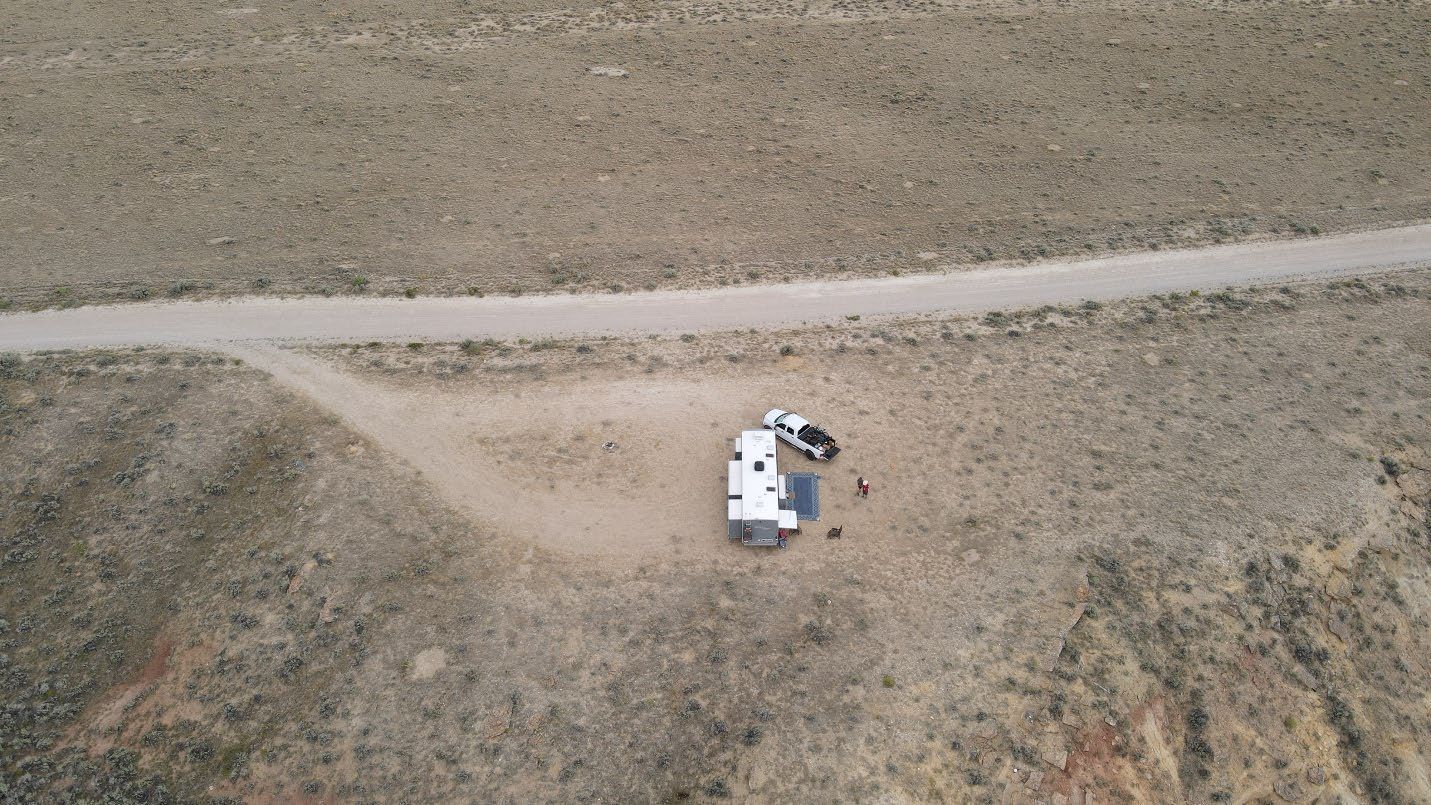
Boondocking Etiquette
Because most boondocking takes place on public land, it’s important to camp responsibly and leave the land as you found it. Following a few simple rules keeps these places open for everyone.
- Follow Leave No Trace principles; pack out everything you bring in.
- Keep a respectful distance if others are nearby; don’t crowd another camper’s space.
- Run generators sparingly and during reasonable hours.
- Protect the land; don’t create new campsites or damage vegetation.
By following proper etiquette, you’re helping preserve these areas for future RV’ers and protecting the natural beauty that makes boondocking so special.
Tips for Beginners
If you’re new to boondocking, ease into it. The more practice you get, the easier it becomes to stay off-grid for longer.
- Start small: try one or two nights close to home so you can test your setup. You can even do this at a campground, just don’t hook anything up and see how long you can last.
- Track your usage: pay attention to how quickly you go through water, propane, and power. This helps you plan future trips more accurately.
- Don’t overpack: bring the essentials but keep your setup simple and manageable.
- Learn your rig’s limits: know your clearance, weight, and turning radius before heading onto backroads. As well as tank size and battery/inverter size.
- Back-up plan: Always have a backup plan when boondocking. Know where the nearest dump station, water fill, or campground is in case your tanks fill up or your power runs low. Also, have a secondary camping spot in mind in case the one you want is already occupied. A solid backup plan takes the stress out of unexpected surprises and keeps your adventure enjoyable.
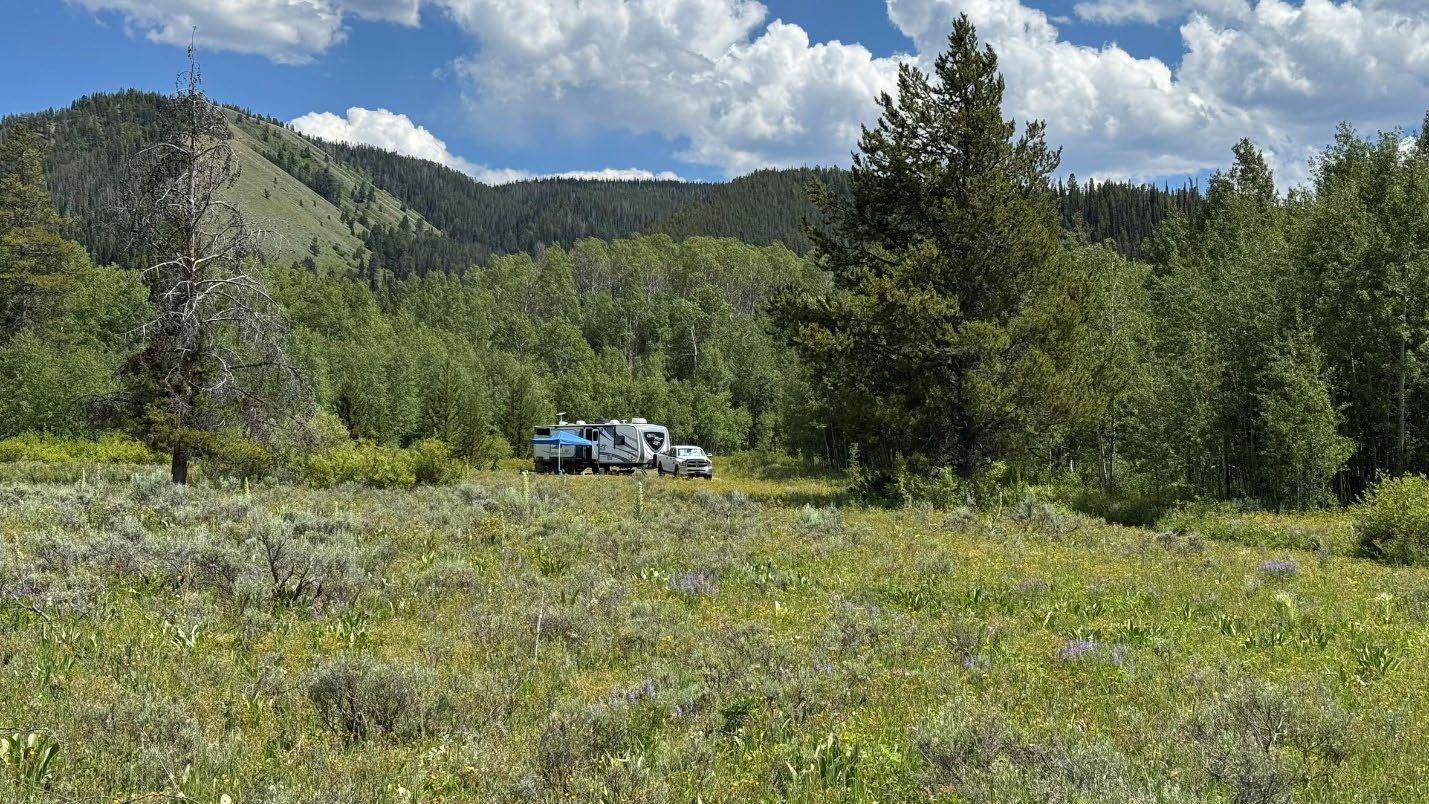
Our Take on Boondocking
For us, boondocking has become one of the most rewarding parts of RV life. We’ve camped in places where the views were better than any resort, where wildlife wandered past our site, and where the only sounds were wind and birds. Sure, it takes some planning and a little self-reliance, but the freedom is worth it every time.
Boondocking has also taught us to be more resourceful, stretching water, managing power, and finding creative solutions when things don’t go as planned. Those challenges are part of the adventure, and they make every trip memorable.
Final Thoughts
Boondocking may sound intimidating at first, but with the right mindset and gear, it’s one of the best ways to enjoy the RV lifestyle. You’ll save money, discover unforgettable spots, and gain confidence in your ability to camp self-sufficiently.
If you’re ready to give it a try, start small, plan ahead, and embrace the adventure.
Check out our full Boondocking 101: Everything You Need to Know video where we walk through the essentials step by step!





